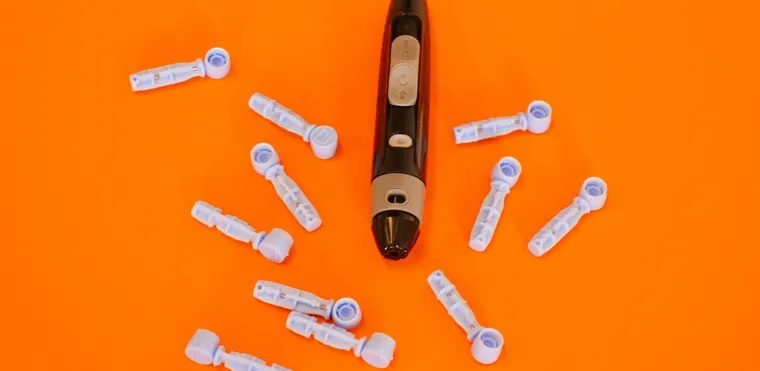Balancing your blood sugar is essential for your well-being, influencing everything from energy levels to mood. Implementing lifestyle changes like exercising and eating balanced meals can make a significant difference.
Healthy Eating Habits for Blood Sugar Control
Balancing meals to incorporate a variety of nutrients is key to managing blood sugar levels. Start by including plenty of non-starchy vegetables like leafy greens, carrots, and peppers which provide essential vitamins and minerals without causing a spike in blood sugar. Integrating pulses such as chickpeas, lentils, and beans can also offer significant benefits. These legumes have a low glycemic index (GI) and improve both post-meal blood sugar levels and long-term blood sugar regulation. Additionally, adding protein or healthy fats, like lean meats, fish, nuts, and avocado, can help to stabilize blood sugar by slowing down the absorption of carbohydrates.
Portion control plays a critical role in preventing blood sugar spikes. Eating slowly, measuring servings, and using smaller plates can help you manage portion sizes effectively. Paying attention to food labels can aid in understanding what you're consuming, particularly when it comes to hidden sugars. Moreover, utilizing tools like food journals or food-tracking apps can keep you accountable and aware of your eating habits. Taking the extra step of consuming foods in a specific order—such as eating vegetables and proteins before carbohydrates—may further enhance blood sugar control. Consistency in these dietary habits is crucial for individuals with diabetes and other metabolic conditions.

The Role of Exercise in Blood Sugar Management
Exercise is a potent tool in managing blood sugar levels. Regular physical activity, such as walking, cycling, or swimming, aids in weight management and significantly increases insulin sensitivity, making it easier for your cells to utilize available sugar in your bloodstream. While aerobic exercises are effective, resistance training, like lifting weights or using resistance bands, has been shown to enhance blood sugar regulation and reduce post-meal blood sugar spikes. Committing to a consistent exercise routine can pave the way for better long-term blood sugar control and overall metabolic health.
Moreover, integrating physical activity into your lifestyle can bring a host of other benefits beyond blood sugar management. Exercise relieves stress, improves mood, boosts energy levels, and promotes better sleep. Tackling stress through regular workouts can prevent stress-induced blood sugar fluctuations, adding another layer of stability to your health. By staying active, you not only manage blood sugar levels but also improve your overall well-being, making it a cornerstone of a healthy lifestyle.
Medications and Treatments for Blood Sugar Control
Medications, often prescribed when lifestyle adjustments alone are insufficient, play a crucial role in blood sugar control. Drugs like GLP-1 receptor agonists and SGLT-2 inhibitors not only help in lowering blood glucose levels but also offer cardiovascular benefits. These medications work by enhancing the body’s natural ability to manage insulin and glucose. For instance, GLP-1 receptor agonists improve insulin secretion and create a feeling of fullness, which can aid in weight management—a key factor in blood sugar regulation. Always consult with your healthcare provider to tailor the medication plan to your specific needs.
Insulin therapy remains a cornerstone for many individuals managing diabetes, particularly type 1 diabetes, where the body cannot produce insulin. For those with type 2 diabetes, insulin is sometimes necessary when other medications do not provide sufficient glucose control. Beyond pharmacological treatments, continuous glucose monitors (CGMs) and insulin pumps are technological advancements that help keep blood sugar levels within a target range. Regular monitoring and adjustments based on real-time data can significantly enhance your ability to manage blood sugar levels effectively, providing a better quality of life.

